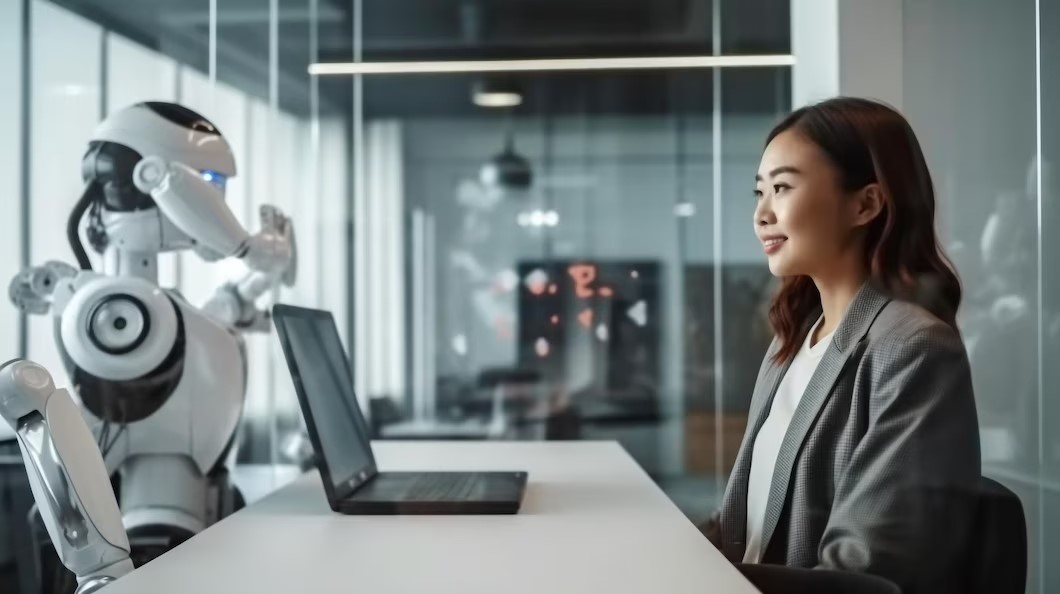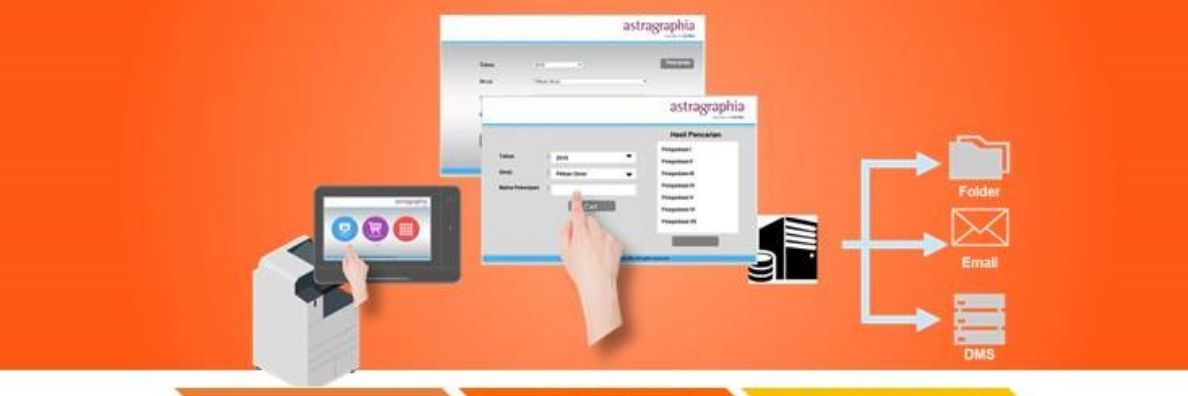Meet AI Technologies and Today's Workspaces

Astragraphia Document Solution - As the use of artificial intelligence (AI) in the work environment progresses, there is a growing concern that AI can slowly take over human work.
The presence of AI technology can be said to be a newcomer, but it has been used by many people behind the scenes more than we realize. AI is not only found in digital applications and services, but is also a vital component in the software of office equipment. AI can increase work productivity more than we imagine. Is this a threat, allowing us to explore the workforce with human and digital collaboration.
Since the 2020 pandemic, AI has been increasingly integrated into human work. AI turns out to have the potential to revolutionize the customer experience in a better, more productive and more efficient direction.
How Is Artificial Intelligence Changing the Way We Work?
AI has the potential to improve and empower a wide range of industry sectors. The strategic application of AI will continue to transform business. The following are some AI applications found in various industrial sectors:
AI in Finance
In industries such as Banking and Finance, data accuracy is everything.
AI has enabled automation, increased efficiency and lowered costs by replacing paper-based processes. Many companies have started automating their accounts payable (AP) processes. Invoices scanned by AI analyze data and automate data processing via OCR (optical character recognition).
Instead of replacing human workers, AI has made their lives easier. Instead of poring over piles of paper, manually encoding data, human workers oversee digital processes, and ensure speed and accuracy.
With AI-driven data capture, touchless processing, automated sorting, and electronic workflow capabilities, workers can focus on reviewing and approving processes, managing business cash flow, and improving stakeholder relationships.
AI in Maintenance Support
AI can support operational excellence by reporting machine performance. Error alerts and diagnostic data are sent automatically to a support specialist, who will then take the necessary action. Automatic health checks and prediction of performance issues through AI technology help speed up technical support staff resolution response times.
AI always companies to offer round-the-clock technical support. Remote problem solving is done 24 hours a day, 7 days a week, accomplished through intelligent features and provides meaningful answers, enhanced and improved over time by machine learning.
AI for Print Service Providers
In production printing, AI can make recommendations about color matching, paper alignment, document layout, and standard preprint and print processes.
AI is also used to scan image quality and can make corrections to effects such as backlight exposure and contrast issues. However, this does not diminish the human aspect of print management, as workers can now focus on implementing quality control and developing business skills.
AI for Brand Owners
In the marketing industry, collateral personalization based on variable data, and versioning techniques are now considered the norm. AI manages vast amounts of information from an ever-expanding pool of customers and data, enabling business owners to achieve efficiencies in reaching targeted audiences with relevant marketing messages.
Human Resources and AI: A New Collaboration
Many businesses are already reaping the benefits of AI. Several industries have enjoyed huge leaps in performance and throughput since training their workforces to use AI and mobilizing technology to process tasks.
Increased efficiency, increased customer retention and customer satisfaction are the results of a fruitful partnership between humans and artificial intelligence.
With the increasing demand for automation, AI will continue to enable businesses to scale production, grow, and deliver more value using less resources. While AI takes over certain aspects of the human role, it also provides new opportunities to develop other skills.
Artificial Intelligence in Action
There are numerous real-world applications for artificial intelligence systems today. According to the IBM website, here are some of the most common examples of the use of artificial intelligence in our daily lives.
1. Speech Recognition
Automatic speech recognition (ASR), computer speech recognition, and speech-to-text (speech to text) are all terms for speech recognition. This system has the capability of converting human speech into speech by using natural language processing (NLP). written format. Many mobile devices use speech recognition in their systems to perform voice searches or to improve accessibility to instant messaging services.
2. Customer Care
Online virtual agents are currently replacing humans in some customer service or customer service systems. They answer frequently asked questions about service topics such as delivery, make personalized recommendations, and recommend sizes to users. Message bots on e-commerce sites with virtual agents, messaging apps like Slack and Facebook Messenger, and a variety of tasks typically performed by virtual assistants and voice assistants are the most common examples.
3. Computer Vision
This artificial intelligence technology allows computers and their systems to obtain information from digital images, videos, and other visual input. Later, based on the visual input, the computer will be able to take action. This ability to provide recommendations is different from just an image recognition task. Computer vision has applications in phototagging in social media, radiology imaging in healthcare, and self-driving cars in the automotive industry.
Astragraphia as the Exclusive Distributor of FUJIFILM Business Innovation has Automation Solutions to help companies where you work with high performance and are ready to face the future, supported by AI technology and human workforce. To find out a range of DX products and solutions that can help your work productivity, contact the Astragraphia Business Consultant Team or Halo Astragraphia at 1500-345 every Monday - Friday at 07.00 - 18.00 WIB.
Source:
• FUJIFILM Business Innovation
• www.kompas.com




